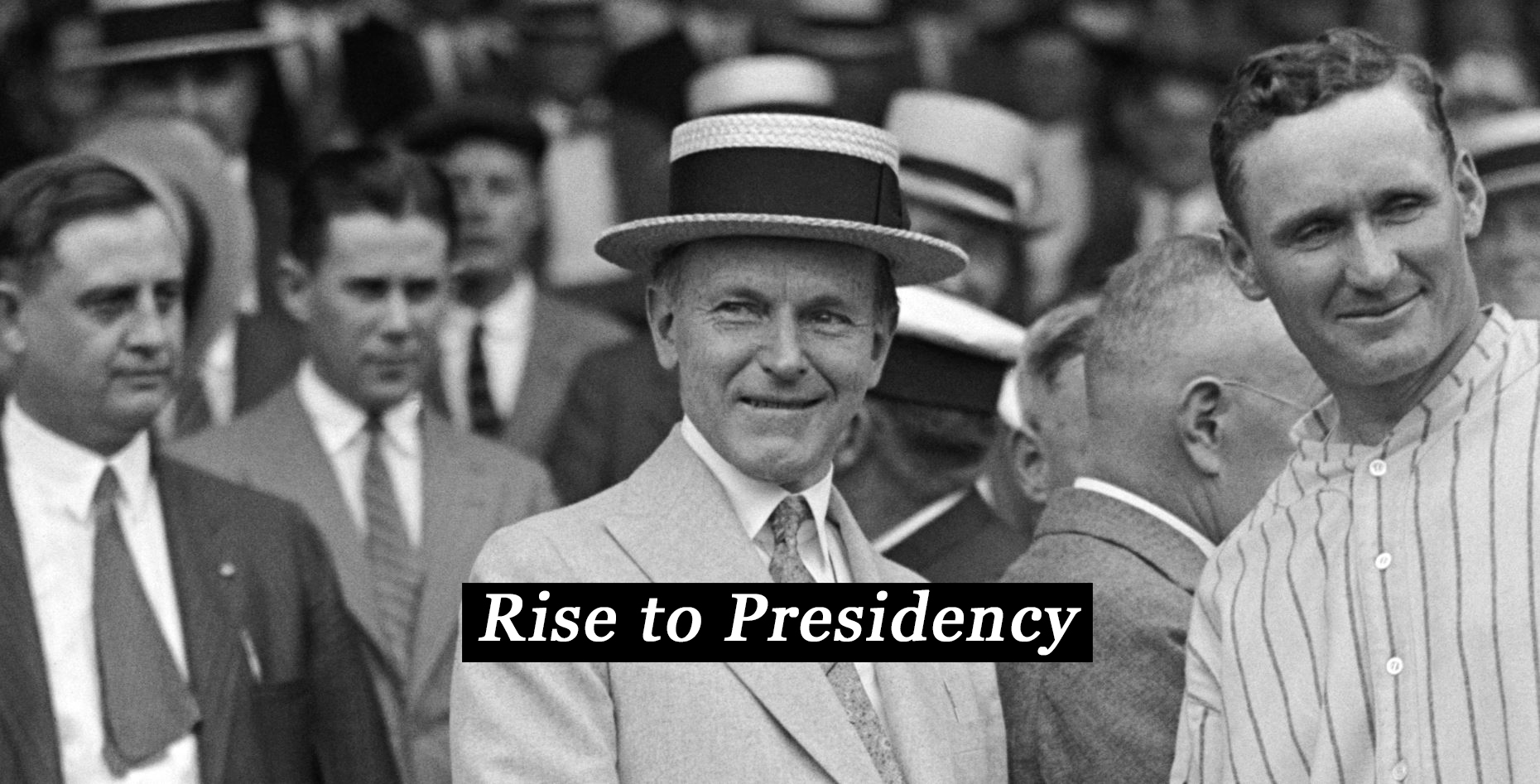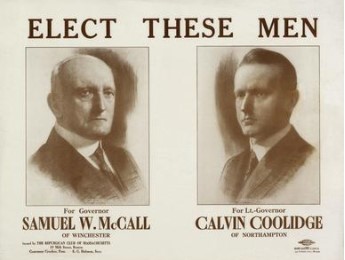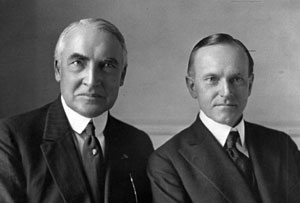In September of 1895, Coolidge began his lawyer apprenticeship under John C. Hammond and Henry P. Field, both attorneys in Northampton, Massachusetts. Coolidge applied himself to studying law, and in 1897, Coolidge was admitted to the Massachusetts bar. Just the next year, he opened his own law firm in 1898, and built up his reputation. He was noted for his equality in representation, by helping the poor and providing an attainable service.


From left to right: Field, Coolidge, Hammond in a college reunion in 1926
“I should like to live where I can be of some use to the world and not simply where I should get a few dollars together.”
~ Calvin Coolidge, in a letter to his father

A poster of Coolidge when he was running for Lieutenant Governer, and won in 1915, 1916, and 1917, Everett Collection Historical
While Coolidge was in Northampton, he established for him a reputation as a man of character who knew his work and could be trusted to perform his duties without scandals attached to his name. He impressively started at the bottom of the political ladder and worked his way to the top. From going from City Councilman, to Governor of Massachusetts from 1919-20, he built up his reputation quite well.
While Governor, Coolidge had dealt with 80% of Boston's police force striking, causing riots and looting. Coolidge came to be regarded as the hero of the entire episode, when he deployed the Massachusetts State Guard to curtail recklessness. He declared, “There is no right to strike against the public safety by anybody, anywhere, anytime,” Coolidge gained a national reputation as a staunch supporter of law and order, which propelled him to be seen as a viable vice-presidential candidate.

Scollay Square during the Boston Police Strike of 1919, The Boston Globe.
"You aren't going to take it are you?" asked Mrs. Coolidge. "Well, I suppose I'll have to." said Coolidge.
~ Calvin Coolidge to his wife after a phone call notifying Coolidge that he was nominated to be Vice President

Calvin Coolidge and Warren G. Harding, Calvin Coolidge Foundation
Under interesting circumstances and mob opinion at the 1920 Republican National Congress, Coolidge was nominated Vice President of Warren G. Harding, due to his notable response to the Boston Police Strike of 1919 (referenced above) . Under Harding, As vice president, Coolidge played little role in the Harding administration, keeping a low profile as President of the Senate and at cabinet meetings, earning him the moniker of "Silent Cal".